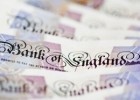Time for another showdown over energy policy. House Republicans included a provision in the new highway bill extension (five months) that would force the Obama administration to approve the complete construction of the Keystone XL pipeline. The White House reacted about as well as one would imagine:
The White House on Tuesday threatened to veto House legislation to extend transportation programs because it contains GOP language that mandates approval of the Keystone XL oil sands pipeline.
The House is slated to vote Wednesday on the bill that keeps the transportation programs funded through September, the end of the fiscal year.
It would take permitting of the proposed Alberta-to-Texas pipeline away from the State Department and task the Federal Energy Regulatory Commission with approving the project.
“Because this bill circumvents a longstanding and proven process for determining whether cross-border pipelines are in the national interest by mandating the permitting of the Keystone XL pipeline before a new route has been submitted and assessed, the president’s senior advisers would recommend that he veto this legislation,” the White House said in a formal “statement of administration policy” Tuesday afternoon.
A “proven process”? Congress has had to push the Obama administration into action more than once to get the approval in place. They forced Obama to issue a denial at the beginning of the year, although Obama later had to lobby the Senate to keep the rejection in place. When that turned out to be unpopular, Obama began talking up the pipeline, ostentatiously “approving” a part of the pipeline construction that didn’t need federal approval anyway.
Time is running out on American interest in Canada’s oil-sands product. The media in the US didn’t cover the so-called “Three Amigos” summit, but Investors Business Daily kept up with the Canadian papers, which did cover Stephen Harper’s warnings to Obama on obstructionism over Keystone:
Energy has become a searing rift between the U.S. and Canada and threatens to leave the U.S. without its top energy supplier.
The Winnipeg Free Press reported that Canadian Prime Minister Stephen Harper warned Obama the U.S. will have to pay market prices for its Canadian oil after Obama’s de facto veto of the Keystone XL pipeline. Canada is preparing to sell its oil to China.
Until now, NAFTA had shielded the U.S. from having to pay global prices for Canadian oil. That’s about to change.
In other words, just as the White House has to come up with a strategy for dealing with increasing prices at the pump, they’re actively ensuring that prices will go up even higher. That’s not exactly smart, nor is it “smart power.”
On the other hand, perhaps the highway bill should be vetoed — but not because of the Keystone XL issue:
The Republican House of Representatives may soon follow the Democratic Senate and give the IRS the power to confiscate your passport on mere suspicion of owing taxes. There’s no place like home, comrade.
‘America, Love It Or Leave It” might be an obsolete slogan if the “bipartisan transportation bill” that just passed the Senate is approved by the House and becomes law. Contained within the suspiciously titled “Moving Ahead for Progress in the 21st Century Act,” or “MAP 21,” is a provision that gives the Internal Revenue Service the power to keep U.S. citizens from leaving the country if it finds that they owe $50,000 or more in unpaid taxes — no court ruling necessary.
It is hard to imagine any law more reminiscent of the Soviet Union that America toppled, or its Eastern Bloc slave satellites.
Passports only get confiscated by courts, usually only when a flight risk is established. Do we want bureaucrats making those decisions with no recourse to normal due process, especially over civil issues of tax bills? If the IRS thinks that a taxpayer in arrears is a flight risk, let them go to a judge to get an order for passport seizure, a process that at least affords a citizen the right to challenge the accusation and defend himself before a disinterested third party. This is a bad idea, and House Republicans should insist that it get stripped from the highway bill before sending it to the President.




























